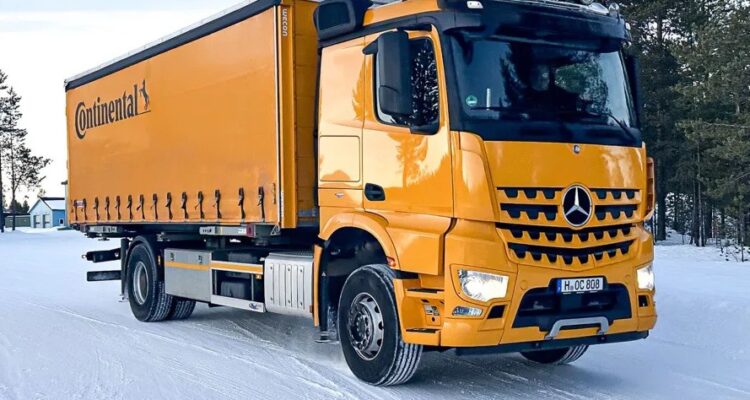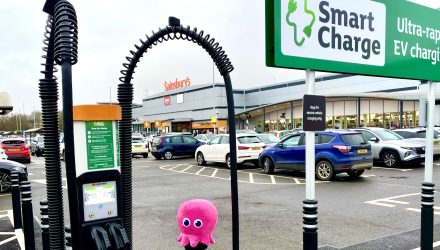Continental continues to push the boundaries of tyre performance through extensive testing in extreme winter conditions. The company’s facility in Arvidsjaur, Sweden, plays a crucial role in evaluating the capabilities of its winter tyres on snow and ice. This article explores the rigorous testing methodologies used to enhance tyre safety, efficiency, and durability.
Joachim Blass, a Continental test engineer with two decades of international experience, highlights the importance of variable test conditions in Sweden: “Depending on the weather, we have different test conditions here every day,” he explains. These findings are directly applied to the continuous development and optimisation of tyre technology.”
Blass emphasises that rolling resistance and noise emissions have become key focus areas, especially with the shift to electromobility.
“Overall, criteria such as low rolling resistance and the lowest possible noise emissions have become considerably more important in recent years,” he says. “This will continue as a result of the growing use of electromobility.”
Continental operates a global network of testing facilities to refine its tyre technology across different climates. Key locations include:
- Contidrom, Germany: This state-of-the-art testing centre has been in operation since 1967, assessing more than 1.3 million tyres to date. It is a critical site for evaluating performance across a range of road conditions.
- Arvidsjaur, Sweden: Located near the Arctic Circle, this facility provides ideal conditions for testing tyre performance in extreme winter scenarios, including ice-covered roads and deep snow.
- Uvalde, USA: Offering varied weather conditions, this site complements Continental’s European testing locations, ensuring year-round evaluations.
By leveraging these facilities, Continental ensures that its tyres meet stringent safety and performance requirements.
Intensive Winter Testing in Arvidsjaur
The winter testing programme in Arvidsjaur focuses on several key performance factors, including:
- Snow Traction: The ability of tyres to maintain grip and provide forward motion on snow-covered surfaces.
- Ice Handling: Stability and responsiveness on icy roads, ensuring safe handling in low-grip conditions.
- Rut Sensitivity: The tyre’s ability to navigate uneven and rutted winter roads without compromising control.
These tests are essential in refining tyre tread patterns and rubber compounds to optimise safety and performance in severe winter conditions.
Tyre Development for Electric Vehicles
With the rise of electric vehicles (EVs), Continental places a strong emphasis on designing tyres suited to their unique requirements. Key areas of development include:
- Rolling Resistance Reduction: Lower rolling resistance helps increase the efficiency and range of electric vehicles.
- Noise Reduction: Since EVs operate more quietly than internal combustion engine vehicles, reducing tyre noise enhances the overall driving experience.
By focusing on these aspects, Continental aligns its tyre technology with the needs of modern electric and low-emission vehicles.
Real-World Performance Assessments
Outdoor testing in Sweden allows engineers to assess tyre performance under real-world conditions. Key environmental factors considered include:
- Temperature Variations: Understanding how tyre compounds respond to extreme cold.
- Different Precipitation Types: Evaluating performance in various winter weather conditions, such as heavy snowfall and freezing rain.
- Wind and Humidity Effects: Analysing how additional environmental elements impact tyre grip and durability.
These insights are critical in refining Continental’s tyre technology to ensure optimal performance in varying winter conditions.
Collaboration and Innovation in Tyre Design
Continental collaborates with automotive manufacturers and industry experts to develop innovative tyre solutions. Areas of research include:
- Advanced Tread Patterns and Rubber Compounds: Designing tyres that deliver superior grip and longevity.
- Electric Trailer Tyres: Adapting tyre technology to support the growing use of electric trailers in freight transport.
Testing facilities serve as hubs for developing and evaluating these innovations under controlled yet challenging conditions.
Enhancing Safety for Commercial Fleets
Continental’s winter tyre development extends beyond passenger vehicles to include solutions for commercial fleets. Testing focuses on:
- Braking Performance on Ice: Ensuring reliable stopping distances in slippery conditions.
- Traction and Stability in Heavy Snow: Maintaining control under challenging winter road conditions.
- Extreme Condition Durability: Assessing how tyres respond to sudden grip loss and emergency manoeuvres.
These evaluations help ensure that fleet operators can rely on Continental tyres for maximum safety and efficiency in winter operations.
Continental’s rigorous winter testing in Sweden reinforces its commitment to developing high-performance, safety-focused tyres. By subjecting its products to some of the harshest driving conditions, the company ensures that its tyres offer exceptional reliability, stability, and efficiency for all types of vehicles.






